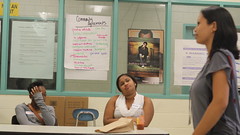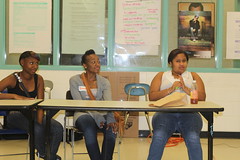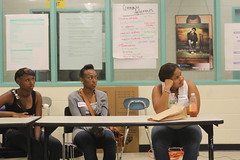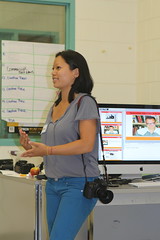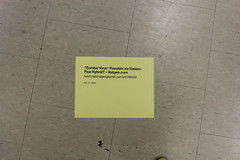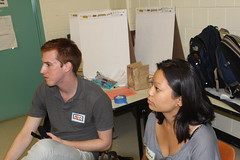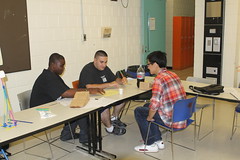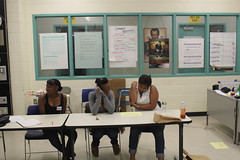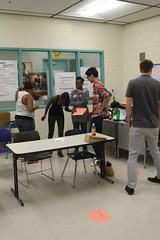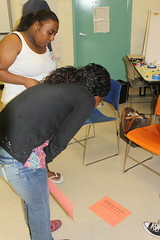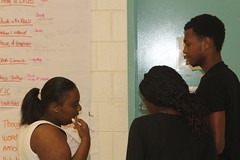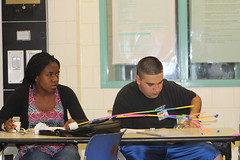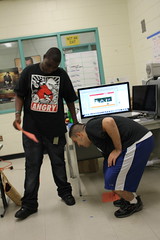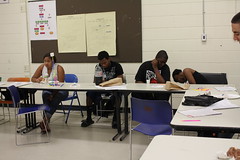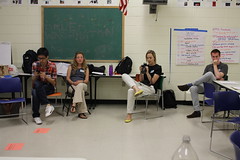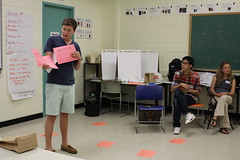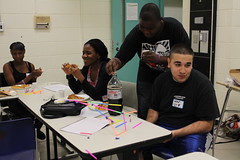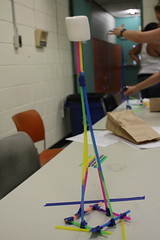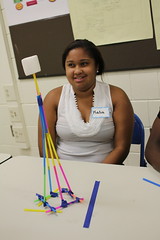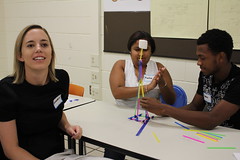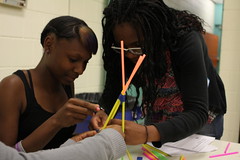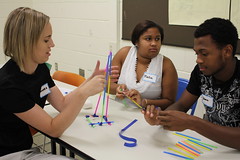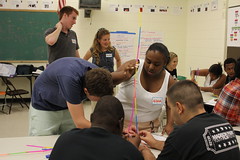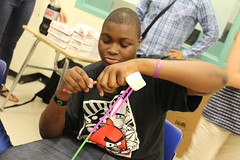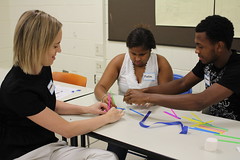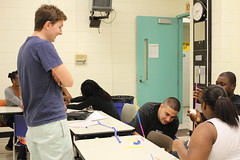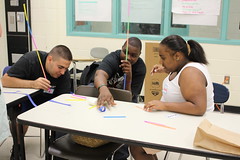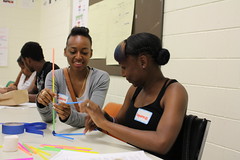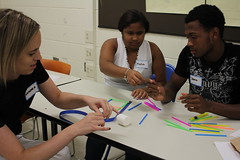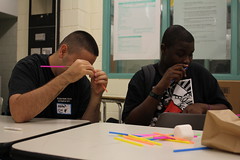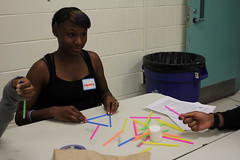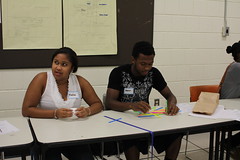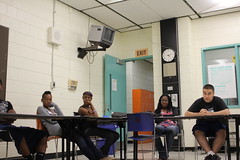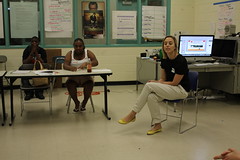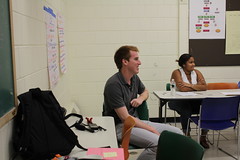Based on previous research efforts and Lab activities, the Youth and Media team has made great strides building a curriculum focusing on information quality, particularly in the context of online news and journalism.
So far, the young members of the lab, together with the core Youth and Media team, have developed six modules about Information Quality & News Literacy:
1. Information Quality: Research Methods
Because the internet is a vast and ever-expanding place, it can be difficult to know where to search for information, particularly for academic research purposes. And once the information is found, how can we discern how high-quality the information is? This module, which incorporates the Information Quality Game, asks participants to consider the variety of factors which make up information quality, while also engaging participants in an exploration of different potential sources for research, from the familiar (such as Google Scholar) to the new (such as Twitter).
Information Quality: Research Methods – PDF
Information Quality: Research Methods – PPT
Research Resources Handout – PDF
Research Resources Handout – DOCX
IQ Game Cards (Sample + 5 rounds)
IQ Game Card Generator
2. Information Quality: The Game
This module familiarizes participants with the different factors which are important for consideration when searching for and evaluating information. From there, participants can create promotional campaigns for their projects in order to engage in the creation process and put into action those elements which they identified as compelling during search and evaluation.
Information Quality: The Game – PDF
Information Quality: The Game – PPT
3. News Stories (Evaluating Source and Search Online)
News media is frequently filled with reports whose details are later disputed, dismissed, or proven false. Such cases are typical with stories that receive ongoing investigation or that are contingent on previously withheld information being released. On the other hand, news stories premised on entirely false information make headlines less frequently (though at the same time, perhaps more than we realize). In this workshop students stand to gain an appreciation of what is at stake when evaluating online content and they gain greater awareness of their own evaluation practices.
Evaluating Source and Search Online – PDF
Evaluating Source and Search Online – PPT
4. Same Image, Different Story
News stories can be told from different points of view highlighting or omitting certain characters and facts. This activity familiarizes students with the numerous perspectives from which any given narrative could be understood. Focusing on the specific phenomenon of a couple caught kissing on camera during the Vancouver riots of 2011, students look at different videos, pictures and news articles to explore the importance of evaluating different sources and points of view.
Same Image, Different Story – PDF
Same Image, Different Story – PPT
5. Thinking Caps (Perspectives on Personal Information)
Online personal information, especially in social networking sites (SNS), is open to interpretation. Various stories about us can emerge when personal information is evaluated from different perspectives. This activity is meant to demonstrate the role of perspective in shaping the evaluation process and to emphasize reflection on the positive and negative implications of such evaluation.
Perspectives on Personal Information – PDF
Perspectives on Personal Information – PPT
6. Headline Cut-Ups
In this activity students engage with news stories from an ongoing event and have the opportunity to discuss how stories develop over time and to recognize differences between multiple sources of information. Students discuss the importance of headlines in describing news stories and identifying key words. Furthermore, students are introduced to the concept of chronology and create a timeline in groups.
Headline Cut-Ups – PDF
Headline Cut-Ups – PPT
If you would like to know more about our modules, please feel free to send us (youthandmedia@cyber.law.harvard.edu) an email anytime. We are happy to provide you with additional information and/or share the actual modules with you.



